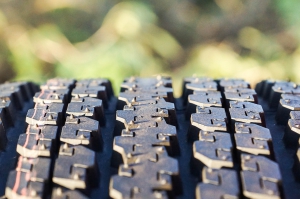 Many drivers and fleets view roadside inspections as a necessary evil. No one relishes them, but they are well aware that inspection help keep the roads safe. Unfortunately, inspections take time and can eat into a driver’s hours of service (HOS). Drivers aren’t alone in their desire for a rapid inspection, either. Inspectors and officers want smooth and swift inspections with minimal incidents as much as drivers do. The following insights can help all parties involved achieve that goal.
Many drivers and fleets view roadside inspections as a necessary evil. No one relishes them, but they are well aware that inspection help keep the roads safe. Unfortunately, inspections take time and can eat into a driver’s hours of service (HOS). Drivers aren’t alone in their desire for a rapid inspection, either. Inspectors and officers want smooth and swift inspections with minimal incidents as much as drivers do. The following insights can help all parties involved achieve that goal.
- Ensure drivers perform thorough pre-trip inspections. Drivers should inspect their vehicles inside and out before going on duty. They should pay particular attention to their lights and tires as these are common sources of safety violations. Cleaning windows and the cab interior can also go a long way toward avoiding an elevated inspection level. If the driver can’t be bothered to clean the inside of his or her cab, the office may wonder what else the driver isn’t maintaining.
- Make 100% certain that drivers know the HOS rules. Many drivers and fleets balked at the electronic logging device (ELD) mandate. They perceived it as further limitations on the existing HOS, but that wasn’t the case. For example, many drivers became frustrated when they couldn’t pause their ELD after starting their on-duty time. However, this was always the rule and many were breaking it without realizing it. ELDs force an electronic reconciliation with how the drivers’ operate their vehicles and existing HOS regulations.
- Double check that drivers know what electronic device they have. When the Federal Motor Carrier Safety Administration (FMCSA) first passed the ELD mandate, there was mass confusion over who needed what type of device. ELD predecessors like automatic onboard recording devices (AOBRDs) also caused confusion. Drivers often use these terms interchangeably, which is incorrect and can cause confusion and delays during inspections.
- Educate drivers on how to operate their ELD or AOBRD. While the FMCSA did grandfather AOBRDs until December 2019, drivers still need to know how to operate whichever device they possess. Drivers should make sure they know how to log in to their device, input manifest information, transfer data, and so on.
ELDs and a driver’s ability to operate them have a significant influence on how well roadside inspections will go. Fleets can take the confusion out of the ELD mandate by investing in an easy-to-use ELD. Contact the experts at DriverCheck to learn more about our ELD solution created for truckers by truckers.